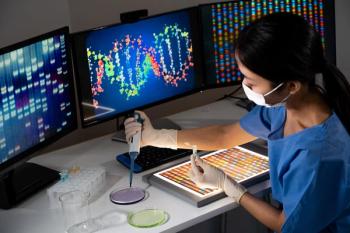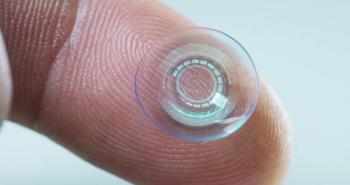
This week in optometry: October 23-October 27
Catch up on what happened in optometry during the week of October 23-October 27.
Catch up with what Optometry Times®' shared this week:
The right fit: Pairing contact lenses and DED therapy deters dropout
Kristyna Lensky-Sipes, OD
Discomfort and dryness are the top reasons patients tell me they’ve stopped wearing their
My strategy is to approach DED management and contact lens wear as tandem goals. We manage the underlying causes of DED and improve ocular surface health, then fit patients with the best lens technologies for their specific needs. By addressing both DED and contact lens fitting together, my patients in their 20s are comfortable and successful in contact lenses—and so are my patients in their 60s and everyone in between.
Artificial intelligence in eye care
Leo P. Semes, OD, FAAO
The concept of machines doing human tasks has been a topic of debate for decades and perhaps even centuries. A fear among factory workers in the first half of the 20th century was that mechanization would displace the factory worker. Decades later, we see that automation has arguably bettered our lives and made society more productive. The same fear has been expressed regarding artificial intelligence (AI) in general and specifically its use in health care.
Artificial intelligence in its contemporary application traces its origins to the mid-1930s. Anyone who has seen The Imitation Game may recognize the agony of Alan Turing attempting to and eventually succeeding in cracking enemy-coded messages. His Turing machines are widely regarded as forerunners of today’s computers. What is the chore of computers but to perform complex tasks that would be burdensome for humans? How do computers accomplish their tasks? The answer is simply that they employ algorithms to funnel data to produce an answer. What is an algorithm? Simply, it is a set of rules followed by computers to digest large amounts of data and provide a conclusion (similar to a diagnosis).
Study: Eating grapes may benefit eye health
David Hutton, Managing Editor, Ophthalmology Times
A team of researchers recently conducted a randomly assigned, controlled human study that found eating grapes for 16 weeks improved key markers of eye health in older adults.
The controlled trial (NCT05064865), published in the scientific journal Food & Function looked at the impact of regular consumption of grapes on macular pigment accumulation and other biomarkers of eye health.1 This is the first human study on this subject, and the results reinforce earlier, preliminary studies where consuming grapes was found to protect retinal structure and function.2
Exploring the Black health care experience
Emily Kaiser Maharjan, Assistant Managing Editor
For optometrists, patient experience is paramount. It affects relationships with patients, patients’ trust in their care team, a practice’s bottom line, business growth opportunities, staff satisfaction, and, ultimately, a patient’s health. So what can optometrists do to ensure they are creating the best possible environment for their patients? Essence Johnson, OD, FAAO, executive director of Black EyeCare Perspective and director of health care careers at Uplift Education, suggests we consider the overall health care experience of the person in the chair.
In July, Johnson
Treating dry eye and other ocular conditions may take a village
Lynda Charters
Reviewed by John Sheppard, MD, MMSc, FACS
When patients present with dry eye disease and other ocular conditions, the treatment course may become more challenging. John Sheppard, MD, MMSc, FACS, of Virginia Eye Consultants, Norfolk, described 2 such cases and his treatment approach in 2 patients with dry eye disease, and shared some of the highlights.
Sheppard emphasized the need for importance of collaboration among ocular clinicians considering the low number of ophthalmologists in training annually and the tripling of the Medicare population in recent decades. He emphasized that optometrists and ophthalmologists should be experts in ocular surface disease.
Newsletter
Want more insights like this? Subscribe to Optometry Times and get clinical pearls and practice tips delivered straight to your inbox.















































